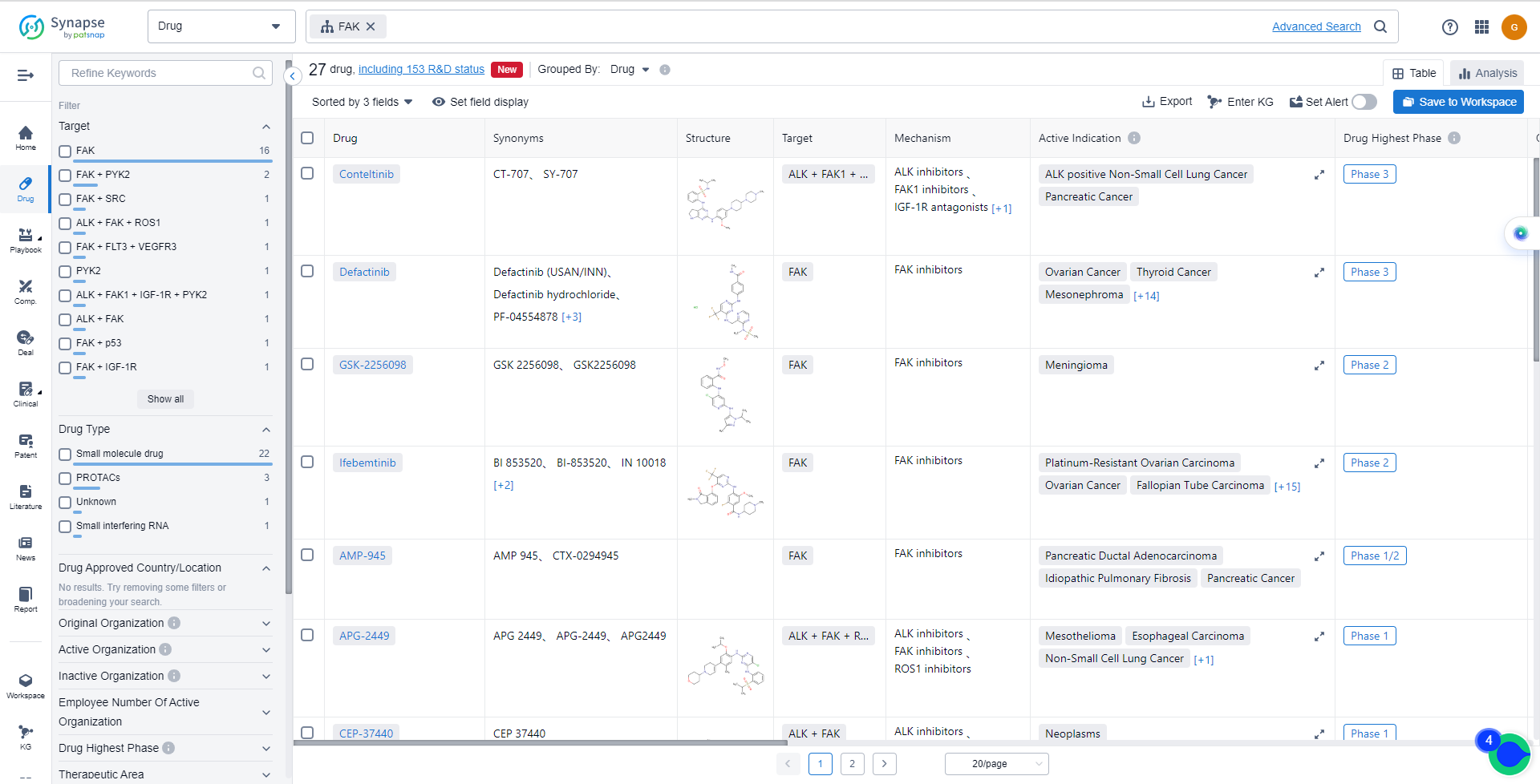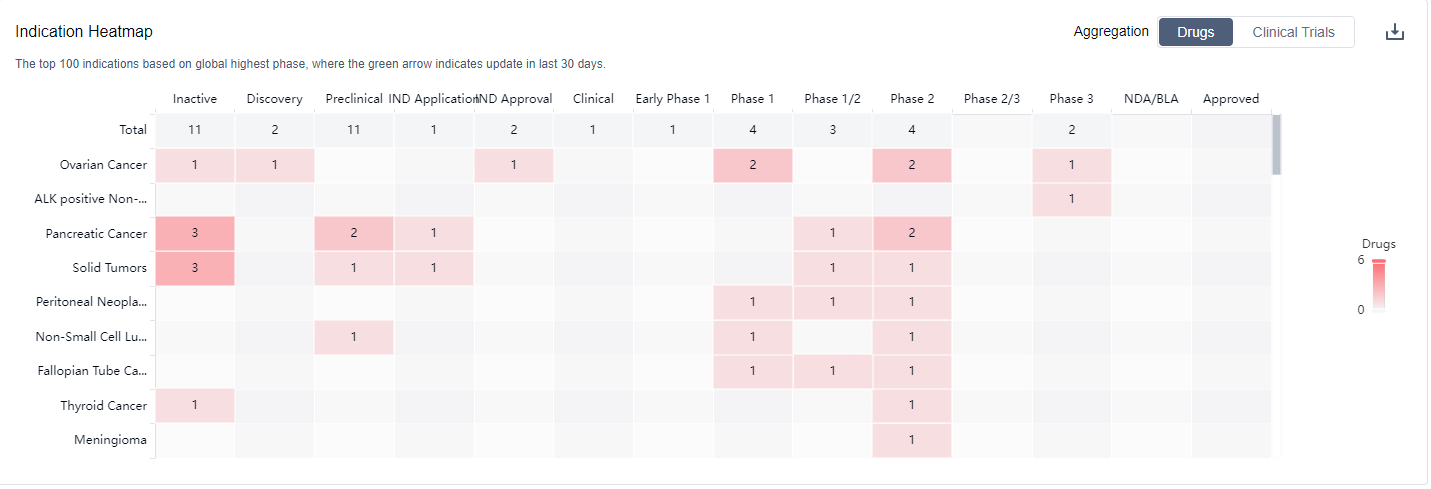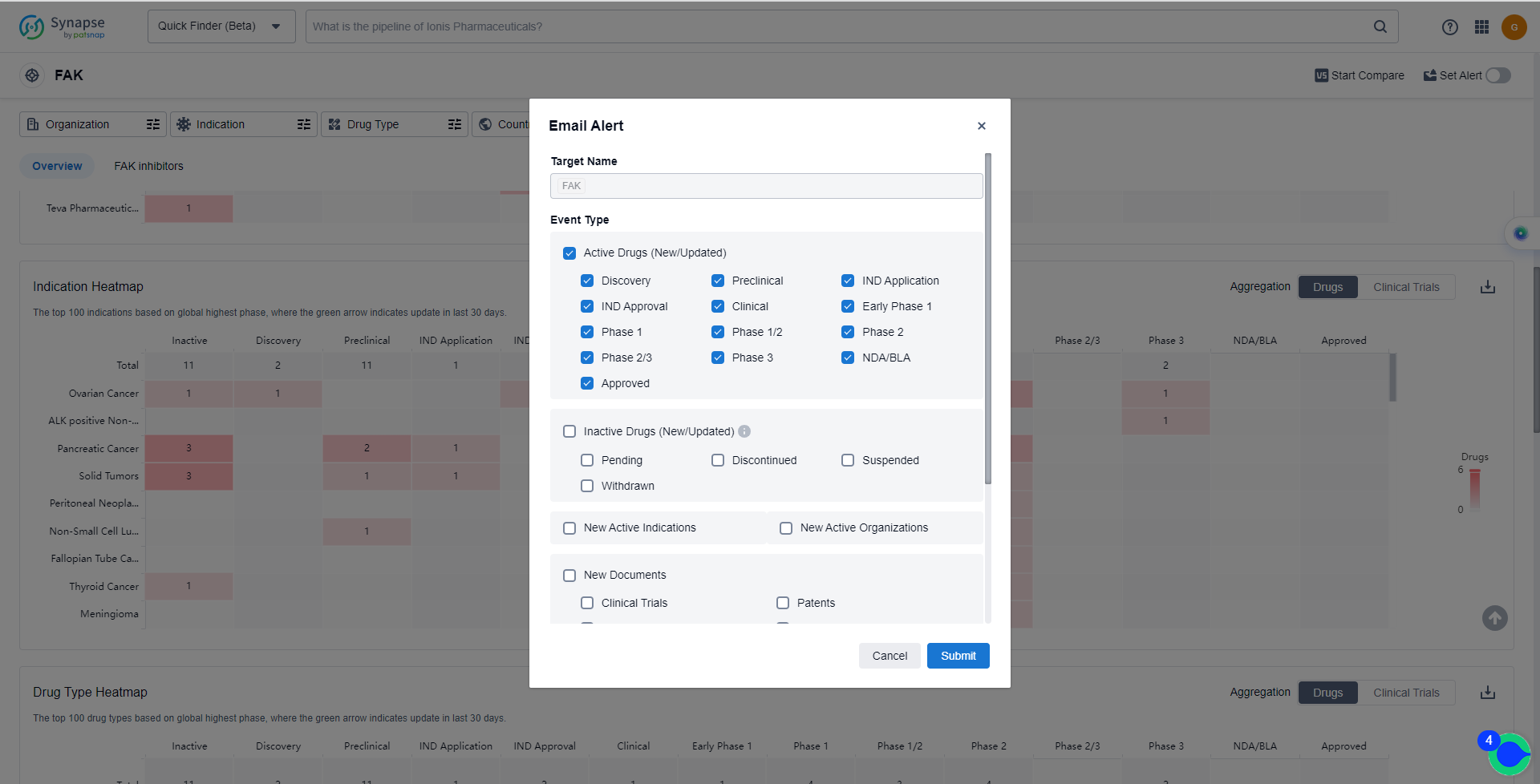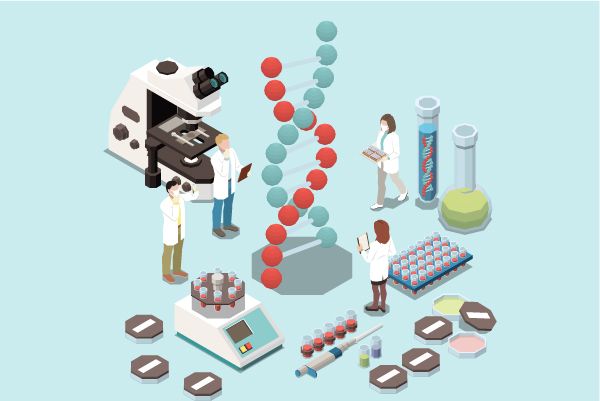What are FAK inhibitors and how do you quickly get the latest development progress?
FAK, or Focal Adhesion Kinase, is a crucial protein involved in various cellular processes within the human body. It plays a significant role in cell adhesion, migration, proliferation, and survival. FAK acts as a signaling molecule, transmitting signals from the extracellular matrix to the cell's interior, thereby regulating cell behavior. It is particularly important in processes like wound healing, tissue development, and cancer progression. FAK's dysregulation has been linked to several diseases, making it an attractive target for pharmaceutical interventions. Understanding the role of FAK in the human body is essential for developing therapeutic strategies to modulate its activity and potentially treat various disorders.
FAK, also known as Focal Adhesion Kinase, is activated by receptor tyrosine kinases (RTK), intracellular pH changes (H+), integrins, G protein-coupled receptors (GPCR), and cytokine receptors. It increases cell motility by influencing signal transduction mediated by ARP2/3, RHO guanine nucleotide exchange factor (RHOGEF), talin or cortactin, and SRC or PI3K.
Research has found that FAK is overexpressed in various types of tumors, including ovarian cancer, breast cancer, lung cancer, colorectal cancer, pancreatic cancer, prostate cancer, and head and neck cancer, and is associated with poor prognosis in many cancers. Inhibiting or degrading FAK can inhibit the proliferation, migration, and invasion of tumor cells. Moreover, researchers have found that inhibiting the FAK signaling pathway can effectively reverse various chemotherapy and targeted therapy failures caused by tumor resistance, and can enhance the response and efficacy of immunotherapy for solid tumors.
However, the development of FAK inhibitors has not been smooth. Although FAK inhibitors have shown some anti-tumor activity in some tumors, no significant improvement in disease treatment has been observed in the research of various companies. Therefore, companies that initially engaged in the development of FAK inhibitors chose to give up halfway. Among them, Pfizer Inc. transferred defactinib to Verastem, and Boehringer Ingelheim GmbH (BI) transferred IN10018 to Inxmed (Nanjing) Co., Ltd.
Overall, the target FAK shows promising potential in the pharmaceutical industry, with multiple companies, indications, drug types, and countries/locations involved in its development. Further research and development efforts are needed to fully explore the therapeutic benefits and commercial potential of targeting FAK.
The mechanism of action of FAK inhibitors
FAK inhibitors are a type of drug that target and inhibit the activity of focal adhesion kinase (FAK). FAK is a protein that plays a crucial role in cell signaling and is involved in various cellular processes such as cell adhesion, migration, and proliferation. FAK inhibitors work by blocking the enzymatic activity of FAK, thereby preventing its downstream signaling pathways.
From a biomedical perspective, FAK inhibitors have gained significant attention in cancer research. Abnormal activation of FAK has been implicated in tumor growth, invasion, and metastasis. By inhibiting FAK, these inhibitors can potentially disrupt the signaling pathways that promote cancer progression. Therefore, FAK inhibitors are being investigated as potential therapeutic agents for various types of cancer.
In addition to cancer, FAK inhibitors may also have implications in other diseases and conditions where FAK signaling is dysregulated. For example, they could potentially be used to modulate fibrosis, inflammation, and angiogenesis.
It is important to note that FAK inhibitors are still under development and further research is needed to determine their safety and efficacy in different clinical settings.
Catalog of FAK Inhibitors
The currently marketed FAK inhibitors include:
For more information, please click on the image below.
What is the purpose of using FAK inhibitors?
FAK inhibitors are under investigation for indications that include multiple cancer such as Non-small cell lung cancer; Pancreatic cancer; Pancreatic cancer; Pancreatic cancer: Meningioma and other solid tumors. For more information, please click on the image below to log in and search.
How can I get the most recent advancements in FAK inhibitors?
In the Synapse database, you can keep abreast of the latest research and development advances of FAK inhibitors anywhere and anytime, daily or weekly, through the "Set Alert" function. Click on the image below to embark on a brand new journey of drug discovery!








